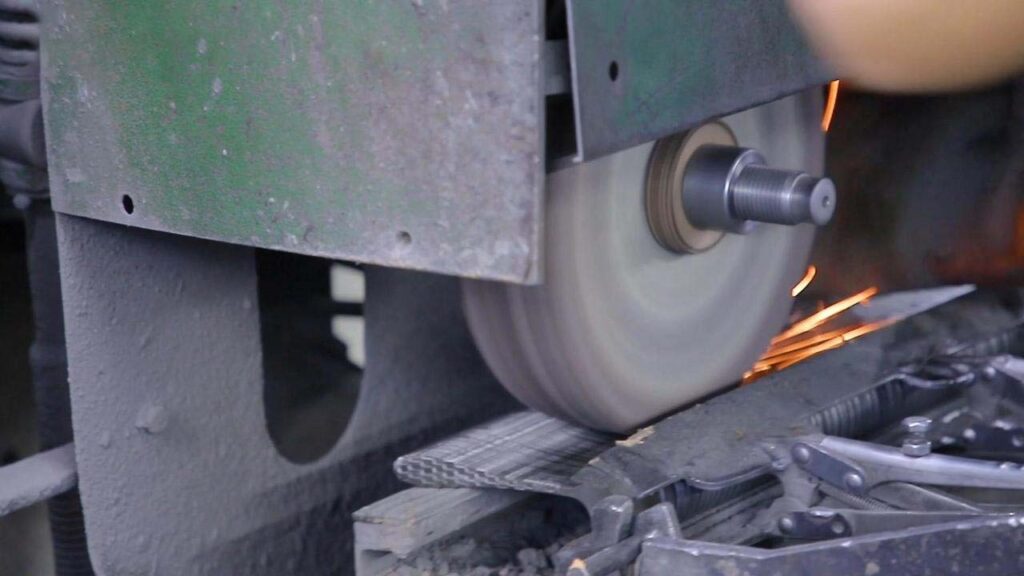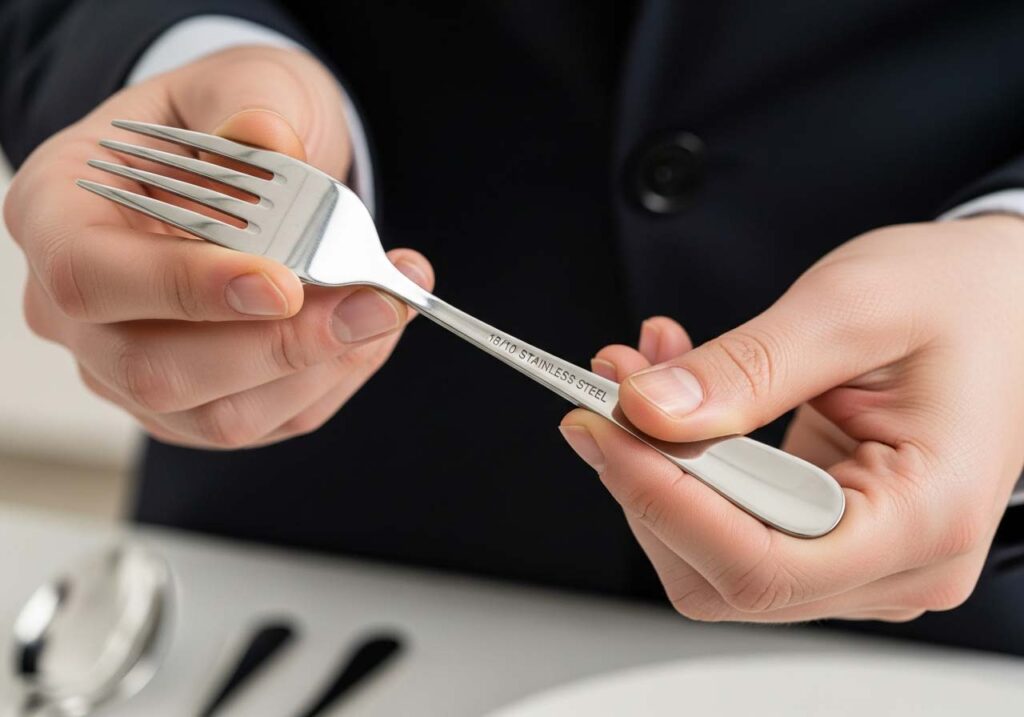How to judge if a cutlery manufacturer is qualified and reliable?
Choosing the wrong cutlery manufacturer can be a disaster. A bad partnership leads to poor quality, missed deadlines, and thousands of dollars wasted.
A reliable manufacturer has a proven track record, verifiable certifications (ISO 9001, LFGB), and is transparent about their production process. Judge them by their sample quality, communication responsiveness, and existing client base before placing a large order.

Jacky, the procurement head for a famous US brand, told me he has a "three-strike" rule. A vague answer, a missing certificate, or a late sample are all strikes. He said, "Linc, I can't afford a 'maybe.' I need a partner who is a definite 'yes' from day one." His approach is tough, but it's smart. He built a system to filter out unreliable suppliers quickly. You need a system too. Here is how you can build one.
Are Certifications and Company History the First Things to Check?
You found a supplier with great prices, but something feels off. They're new and can't provide any official documents, asking you to just trust them. This is a huge risk.
Yes, absolutely. Start by verifying their business license and at least 10 years of experience. Then, demand key certifications like ISO 9001 for quality systems and LFGB or FDA reports for food safety. A reliable factory will provide these immediately.
![]()
The first step is always paperwork. Think of it as a background check. Before you even talk about price, you need to know if they are a legitimate, experienced, and compliant business. A business license proves they legally exist. Ten years of experience means they have survived economic ups and downs and likely have a stable process. But the most important documents are the third-party certifications. They are your independent proof of quality and safety. A factory can say they are good, but an ISO 9001 certificate1 proves they have a documented quality management system. A BSCI audit report2 shows they treat their workers ethically. And an LFGB report confirms their products are safe for food contact by one of the world's strictest standards. If a supplier hesitates or makes excuses when you ask for these, it's a major red flag.
| Document to Request | What It Proves | Red Flag if Missing |
|---|---|---|
| Business License | They are a legal entity. | They might be a middleman, not a factory. |
| ISO 9001 | They have a consistent quality system. | Quality control may be inconsistent and random. |
| LFGB/FDA Report | Their product is verified as food-safe. | The product could be unsafe or get stopped by customs. |
| BSCI Report | They have ethical production practices. | Risk of association with poor labor practices. |
How Can You Verify Their Actual Production Capability?
Their website shows a huge, modern factory, but they are slow to produce samples. You start to worry if they can really handle your 100,000-piece order on time.
Look beyond pictures. Ask for their real monthly output numbers and their equipment list. A capable factory can handle everything in-house, from stamping and polishing to custom PVD coating and logo engraving. They will also have a clear multi-stage QC process.

A company’s real strength is on its factory floor. Don't be fooled by a fancy website. You need to ask direct questions to understand their actual capabilities. Ask them, "What is your monthly capacity for forks?" This concrete number tells you if they can scale to meet your needs. Also, ask about their customization ability. Can they do laser engraving for a logo? Do they have their own PVD coating line for colors like black or gold, or do they outsource it? In-house capabilities mean better quality control and faster lead times. The most critical question is about their Quality Control (QC) process3. A good factory doesn't just check the final product. They have inspection points throughout a product's journey:
- Raw Material Inspection: They test the steel before it's even used.
- In-Process Inspection: They check pieces after stamping and after polishing.
- Final Inspection: They randomly check a percentage of the finished, packed goods before shipping.
Ask them to describe this process to you. A reliable partner will be proud to explain it in detail.
What Should You Look for When Testing a Sample?
The samples have finally arrived, but you don't know what to look for. They look shiny, but that's not enough to justify a large investment. You feel unsure how to properly evaluate them.
Don't just look at the sample; test it. Check its weight and balance in your hand. Inspect the polish for consistency and look for sharp edges. Most importantly, perform a saltwater test by soaking it for 48 hours to check for any signs of rust.

The sample is the most tangible piece of evidence you will get. It tells you the real story of a factory's quality. When it arrives, become a detective. First, just hold it. Does it feel balanced? A well-made fork or spoon has a good weight and doesn't feel flimsy or too heavy in the hand. Run your finger along every edge, especially between the tines of the fork. A poor-quality factory will leave behind sharp, unpolished edges that feel rough. Next, hold it up to the light. On a mirror-polished piece, the reflection should be clear and undistorted, like a true mirror. On a satin finish, the texture should be even and uniform. But the most important test is the saltwater test. Mix some salt in a glass of water and submerge half of the sample. Leave it for 48 hours. This accelerates the corrosion process. A high-quality 18/8 or 18/10 stainless steel sample will come out looking perfect. A cheaper 18/0 or non-food grade sample will likely show small rust spots. This simple test reveals the true quality of the raw material.
Does Good Communication Reveal a Reliable Partner?
You've sent three emails and it's been a week with no reply. The supplier's slow communication is already delaying your project before it has even started, making you anxious.
Yes, communication is a critical sign of a company's professionalism. A reliable partner responds quickly and clearly. They provide transparent quotes, offer after-sales support, and have a strong reputation with long-term clients they can proudly reference.

How a company talks to you before you give them money is the best they will ever communicate. If they are slow, unclear, or unprofessional now, it will only get worse once they have your order. Fast, clear communication is not a bonus; it is a basic requirement. Beyond response time, look at the quality of their answers. When you ask for a quote, is it a single number, or is it a transparent breakdown of costs? A good partner will be open about pricing. Also, ask them about their client history. A manufacturer who is proud of their work will be happy to mention the types of companies they supply, like "major retailers in Europe" or "hotel chains in the US." They have built a good reputation and are not afraid to use it. Finally, ask about their after-sales service. What happens if there's a defect? A confident, reliable manufacturer will have a clear warranty policy. Their service doesn't end when the container ships; they see themselves as your long-term partner.
Conclusion
Finding a great manufacturer is not about luck. It's about following a clear process. Judge them by their papers, their products, and their professionalism to build a partnership that lasts.
-
Understanding ISO 9001 certification can help you ensure quality management in your business dealings. ↩
-
Exploring BSCI audit reports can provide insights into ethical labor practices and supplier compliance. ↩
-
Exploring QC best practices can help you assess a factory's commitment to quality and reliability. ↩
